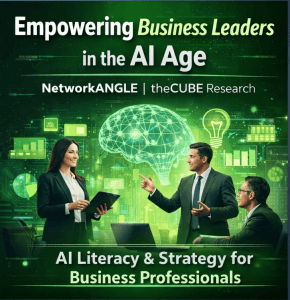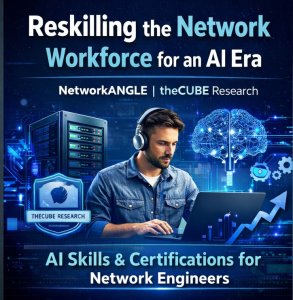IBM has announced the launch of Granite 3.0, its most advanced suite of AI models yet, during the company’s annual TechXchange event. The unveiling of these models marks a critical moment in IBM’s ongoing evolution toward an AI-first future, where enterprises will increasingly rely on artificial intelligence to drive core operations, improve productivity, and gain competitive advantage.
In a conversation with theCUBE Research Rob Thomas, IBM’s Senior Vice President, underscored the shift, noting, “The future of tech will be driven by hybrid cloud and AI. While that premise was debatable in 2020, it’s now becoming a reality. The companies that will outperform in the next decade will be AI-first.”
The Power of Granite 3.0
The Granite 3.0 models are designed to meet the demands of modern enterprises, offering robust, versatile AI capabilities across multiple use cases. Released under the Apache 2.0 open-source license, the models offer a unique blend of performance, flexibility, and autonomy, allowing businesses to fully customize AI applications to their needs while retaining control over their data.
The lineup includes several types of models:
- General Purpose/Language Models: Granite 3.0 8B Instruct, 2B Instruct, 8B Base, and 2B Base
- Guardrails & Safety: Granite Guardian 3.0 models focused on ensuring AI safety and responsible use
- Mixture-of-Experts: Specialized models designed for low-latency, edge computing and CPU-based deployments
These models have demonstrated superior performance on key enterprise tasks like Retrieval-Augmented Generation (RAG), classification, summarization, and cybersecurity. They were trained on over 12 trillion tokens from multiple programming and natural languages, delivering unprecedented versatility.
Dario Gil, IBM’s Senior Vice President and Director of Research, said, “The long-term implications of how business data will be represented inside large language models (LLMs) are still evolving. With Granite 3.0, we’re helping organizations unlock more of their data’s value while reducing the cost of inference.”
AI First, Not AI Bolt-On
One of the key themes of the Granite 3.0 release is the shift from using AI as a bolt-on to making it a central element of business strategy. “Over the last 15 years, AI has been bolted on to core business operations. Now, we’re moving to an AI-first world,” said Thomas. He emphasized that AI-first companies will be the ones to lead in the coming decade, as they transition from experimentation with AI to using it as a fundamental driver of productivity and innovation.
This shift is expected to generate significant economic value. According to Thomas, “The value accrued from AI will be $4.4 trillion over the next five to ten years in terms of productivity and impact.”
Granite 3.0 models are designed to meet this need, providing businesses with the tools to move from experimental AI applications to scalable, production-ready systems. IBM’s models are also more cost-efficient than larger frontier models, delivering savings of up to 23x in some proofs-of-concept.
Leading in AI-Driven Productivity
Granite 3.0 is not just about performance—it’s also about improving enterprise efficiency. For instance, IBM reported that it has saved $2 billion in the last two and a half years by implementing its own AI technologies. “IBM is now a category leader in applying AI to manage IT operations and automate repetitive tasks,” said Thomas.
One notable example of Granite 3.0’s impact is IBM’s collaboration with Vodafone. In just five weeks, IBM’s team of AI client engineers built Tobi, a solution that integrated disparate data sources, analyzed transcripts, and summarized outcomes. The result? Cycle times for answering complex questions were reduced by 99%, a game-changer in customer experience and operational efficiency.
Introducing Granite Guardian 3.0: Responsible AI
As part of its commitment to responsible AI, IBM also introduced Granite Guardian 3.0, a family of models designed to implement AI safety guardrails. These models check AI interactions for risks such as social bias, hate speech, toxicity, and hallucinations, making them some of the most comprehensive safety models available today.
In testing, the Granite Guardian 3.0 8B model outperformed Meta’s Llama Guard models on several safety benchmarks. “These models allow businesses to trust that their AI systems are not only high-performing but also safe and responsible,” said Gil.
Evolving AI Assistants and Agents
IBM is also expanding its capabilities in AI assistants and agents. The next generation of Watsonx Code Assistant, powered by Granite code models, offers general-purpose coding assistance across languages such as Java, Python, and C++. Moreover, IBM’s development of AI agents—autonomous systems capable of reasoning and executing multi-step processes—is setting the stage for the future of enterprise automation.
“Agents will be a significant breakthrough in AI,” remarked Thomas. “Although we’re not weeks away from full deployment, the groundwork is being laid with Granite 3.0 and our Watsonx platform.” These AI agents will help businesses further optimize workflows, from automating customer service to streamlining IT operations.
Expanding AI-Powered Consulting
One of the major announcements during the event was the expansion of IBM Consulting Advantage, an AI-powered delivery platform that will integrate Granite 3.0 as its default model. This platform, which empowers IBM’s 160,000 consultants, will help accelerate AI-driven transformations across industries, providing domain-specific AI agents for tasks like cloud transformation and business operations.
By leveraging Granite’s performance and efficiency, IBM aims to help clients maximize their returns on AI investments. “We’re combining our AI technology with the expertise of our consulting teams to deliver faster, more cost-effective solutions for clients,” said Thomas.
Open Source as a Strategic Differentiator
One of the most striking aspects of the Granite 3.0 release is IBM’s commitment to open-source AI. The models are available under the permissive Apache 2.0 license, allowing businesses to customize AI applications and retain control of their data.
“IBM’s strategy is all in on open source,” Thomas emphasized. “We believe in giving our clients the freedom to tailor AI solutions to their unique business needs, while also driving down costs.”
IBM has also partnered with major platforms like AWS, Google Cloud, NVIDIA, and Hugging Face to ensure that Granite 3.0 models are widely available. This open ecosystem approach is helping businesses access cutting-edge AI without being locked into proprietary solutions.
The Road Ahead: A New Paradigm for AI
IBM’s Granite 3.0 launch represents a key milestone in the company’s AI-first vision. As businesses move from AI experimentation to real-world applications, IBM is leading the charge by offering flexible, scalable models that drive both performance and responsibility.
“This is the most significant organic innovation at IBM in 25 years,” said Thomas, noting that the company’s AI innovation engine is working better than ever. With plans to introduce larger models, multi-modal capabilities, and agent technologies by 2025, IBM is well-positioned to remain a leader in the enterprise AI landscape.
As Dario Gil succinctly put it, “The world of computing is going through a transformation. IBM is uniquely positioned to bring together different forms of computing—AI, quantum, and transactional systems—to unlock value in ways never seen before.”
With Granite 3.0, IBM is not just innovating; it’s setting a new standard for what AI can achieve in the enterprise world. Businesses ready to embrace AI as a core driver of growth and efficiency now have a powerful toolset to help them lead the next wave of digital transformation.


